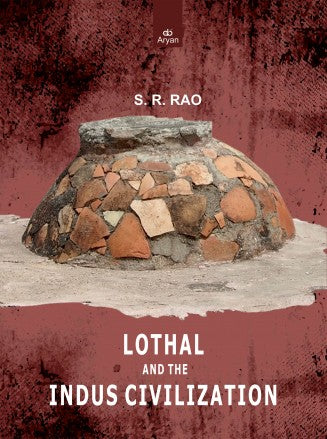LOTHAL AND THE INDUS CIVILIZATION
LOTHAL AND THE INDUS CIVILIZATION is backordered and will ship as soon as it is back in stock.
Couldn't load pickup availability
Genuine Products Guarantee
Genuine Products Guarantee
We guarantee 100% genuine products, and if proven otherwise, we will compensate you with 10 times the product's cost.
Delivery and Shipping
Delivery and Shipping
Products are generally ready for dispatch within 1 day and typically reach you in 3 to 5 days.
- Type: English
- Pages: xxii + 216
- Format: Hard Bound
- ISBN: 9788173056925
- Edition: 2nd Edition
- Publisher: Aryan Books International
- Size: 22 cm x 28 cm
- Product Year: 2023
Discovered in 1954, Lothal is an important archaeological find not only for its own antiquity and advanced civilization but also because it is a vital key to understanding the full story of the ancient Indus Civilization. The discovery of Harappa and Mohenjo-daro earlier showed evidence of one the most ancient civilizations of the world, but left many mysteries due to the apparently sudden destruction of Indus cities. Thus a number of misconceptions have arisen over the years about the Indus Civilization, e.g. that it was land-locked, conservative, short-lived and made no contribution to the progress of mankind.
The excavations at Lothal throw light on a large number of hitherto unexplained points and refute the earlier arguments that the destruction of Harappan cities was primarily due to Aryan invasion. With its unique dockyard and well-developed industries, Lothal played an important role in the Indo-Sumerian trade of the Bronze Age. In the present volume, the author, S.R.Rao (who discovered Lothal and directed the extensive excavations) gives a coherent account of the Indus and post-Indus periods for the first time. He is able to view the Indus Civilization as a whole on the Harappan substratum in the apparently unrelated chalcolithic cultures of the second millennium B.C. in India. In the words of Sir Mortimer Wheeler, “Lothal and the Indus Civilization is an essential contribution to a study of the civilization of the world as a whole”.





